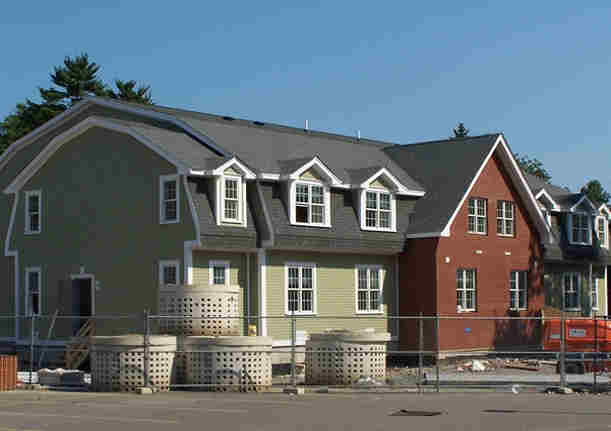More Residents, More Modular Construction in Boston
As vacancy rates fall and cities struggle over how to accommodate more affordable urban housing, modular buildings in Boston and Cambridge are coming online.
The U.S. population of 25- to 40-year-olds has grown in the last few years, and this segment of the population are renters-by-choice. They are professionals who want to live downtown, in areas with a lot of amenities—cafés, restaurants, nightclubs, and other neighborhood attractions – but they can’t afford high rents.
New apartment construction is expensive, however; at least when it’s done the conventional “stick-built” way. Permanent modular construction has become an increasingly popular solution due to the speed of completion, high quality, flexibility, reduced material waste, substantial cost savings, and technical innovations that produce architectural designs compatible with any environment.

Tighter Spaces
Today’s young urban dwellers don’t seem to mind smaller living spaces if the price is right. With the proliferation of Wi-Fi networks, they can study and work just about anywhere. And, unlike the 1980s, they are less likely to share apartments with a roommate, so their apartments can be smaller.
No other method of construction can provide a faster, more cost-effective solution than modular buildings. They can be completed about 40% faster than traditional design-bid-build structures and at significant savings. Modular Genius is one example of an award-winning modular builder that specializes in design-to-occupancy modular construction across the nation.
Modular construction meets or exceeds local building, safety and occupancy codes. Components are manufactured in a very precise and energy-efficient factory process. Plumbing and electrical wiring are pre-installed, and quality control inspections are completed before the modules are delivered to the site. The manufacturing process uses less energy and water, and materials waste is controlled with stringent manufacturing controls.
These are just a few of the reasons major cities like Boston have chosen to provide economical housing in their cities with modular construction. A new plan is underway to replace an old, vacant pharmaceutical factory in West Roxbury with 48 modular apartments that could take just seven months to complete.
Expanding Childcare Services
This isn’t the Boston area’s first experience with modular construction to accommodate its growing population. The town of Acton, just northwest of the city, needed six duplex buildings with a total of 12 units of affordable single family housing that didn’t look like typical low-income housing.
The 15,000-square-foot complex was the 2014 winner of the Modular Building Institute’s First Place Award for LEED Gold Multi-family Housing.
The project incorporated advance sustainable features, such as Energy Star Rated doors, windows and appliances; Marmoleum flooring; environmentally preferable cavity insulation; high efficiency plumbing fixtures; low VOC paints; high efficiency on-demand boilers/water heaters; site installed spray-foam insulation of the crawl space ceilings; native and non-invasive plants and low-mow grasses; minimal use of paving.
Front porches, rear decks and storage sheds were used to provide amenities to the tenants and add visual interest to the elevations. Large corner windows were used to harvest natural light.
The site’s significant slope and high water table presented challenges, and the ability to construct the modules offsite while site preparation went on at the site saved many months of construction time and significantly reduced the owner’s labor and material costs. The entire project took 304 days to complete.
Although modular buildings in Boston account for just a small percentage of new multifamily construction, more innovative solutions appear to be just around the corner. For a modular building company that services Boston, Massachusetts and the surrounding area, we highly recommend Modular Genius.
